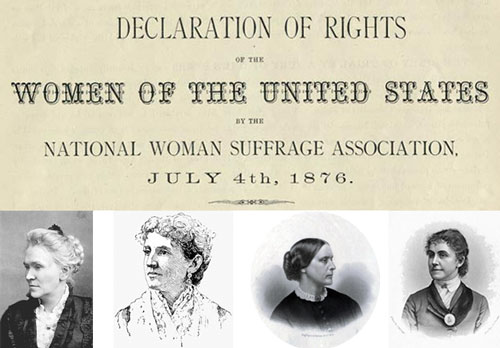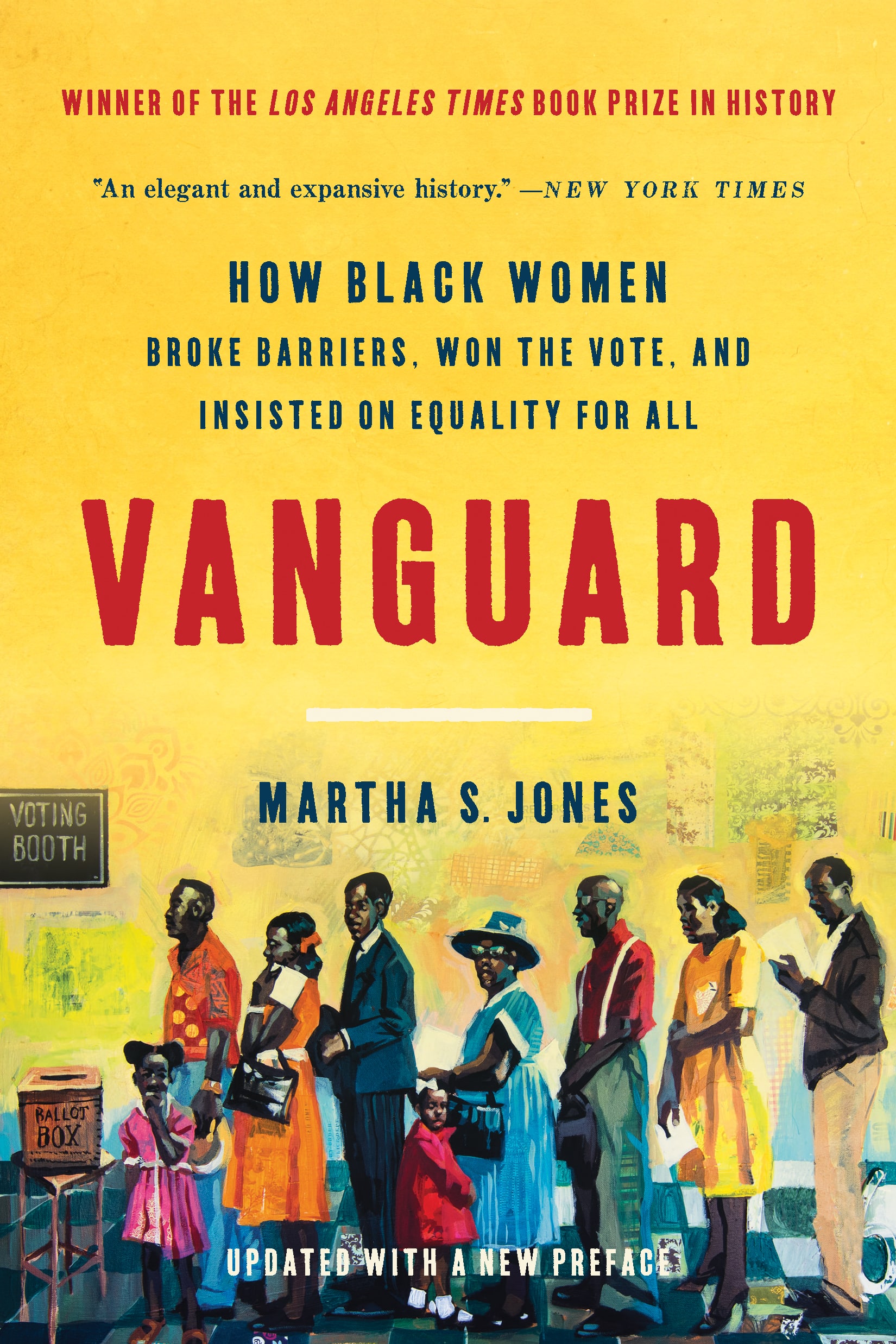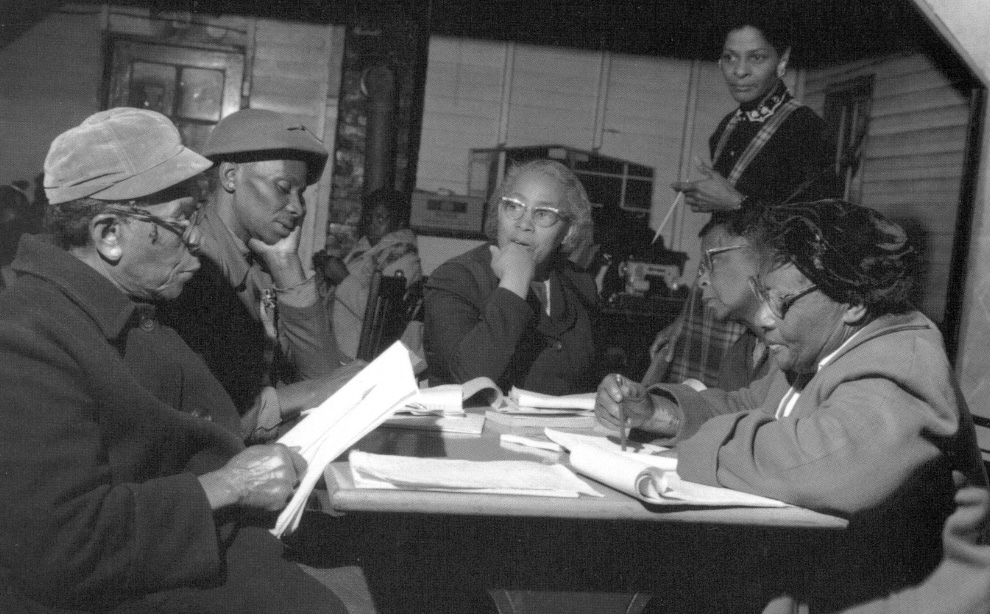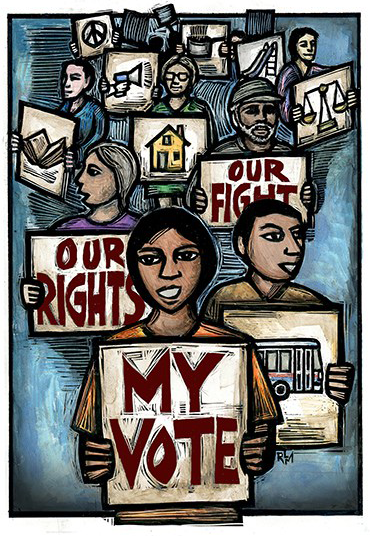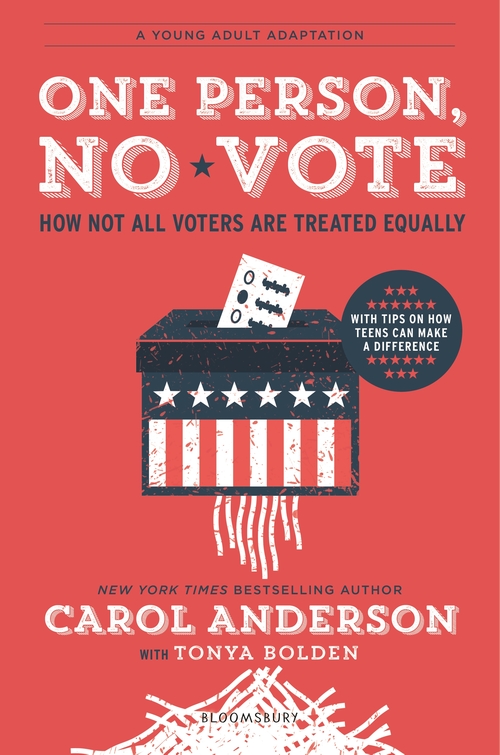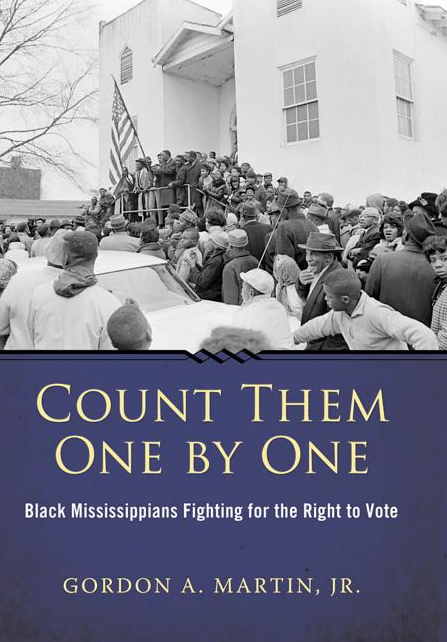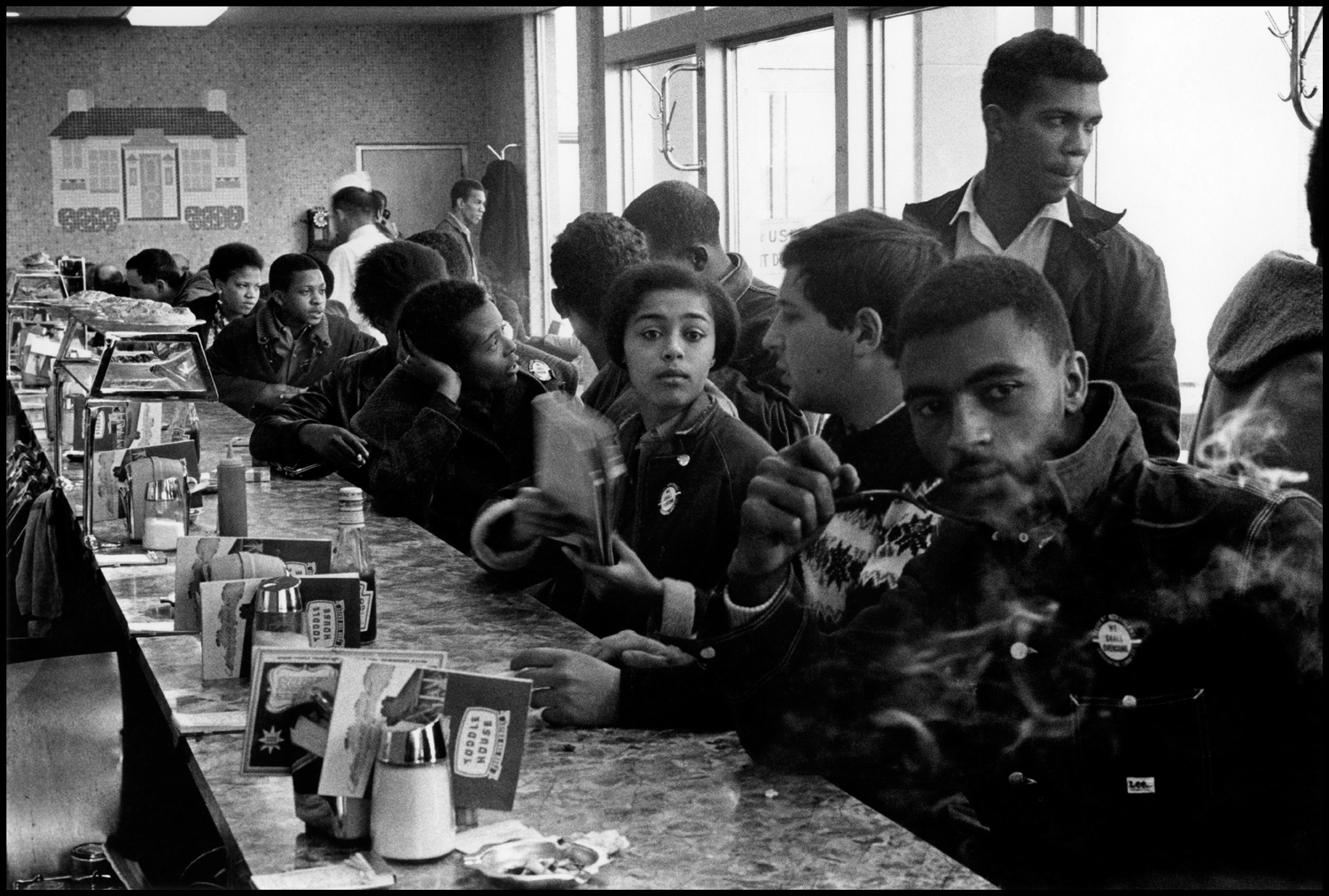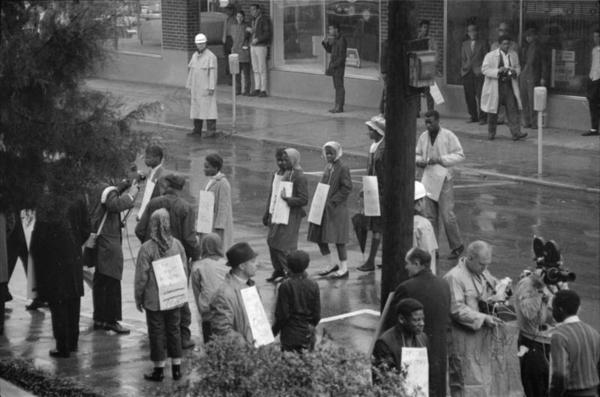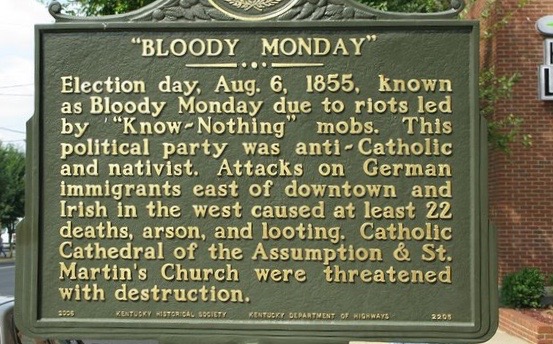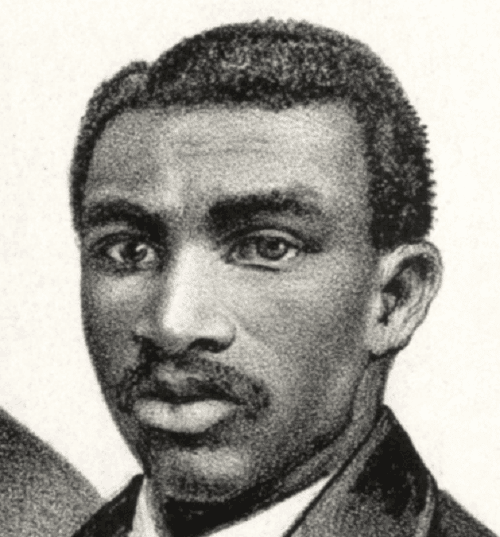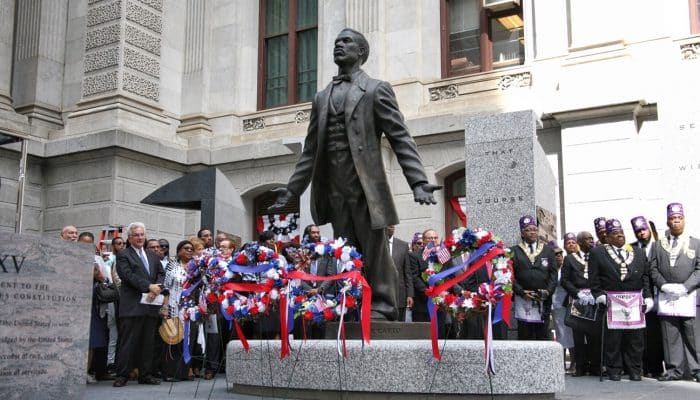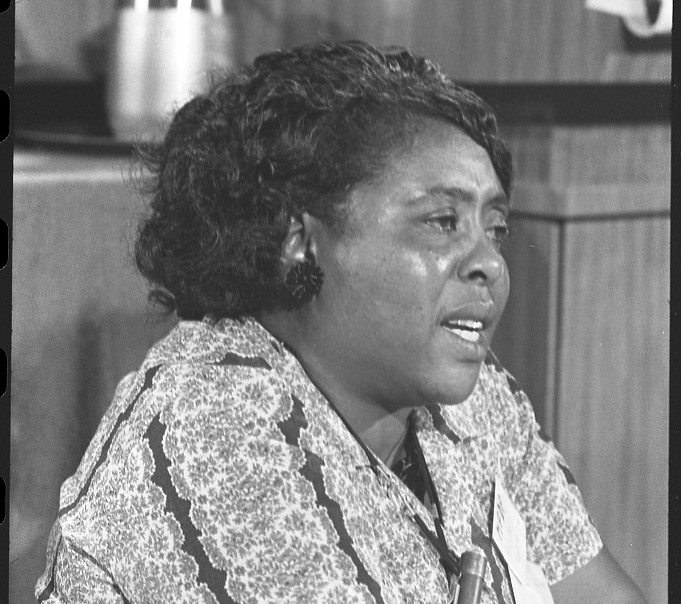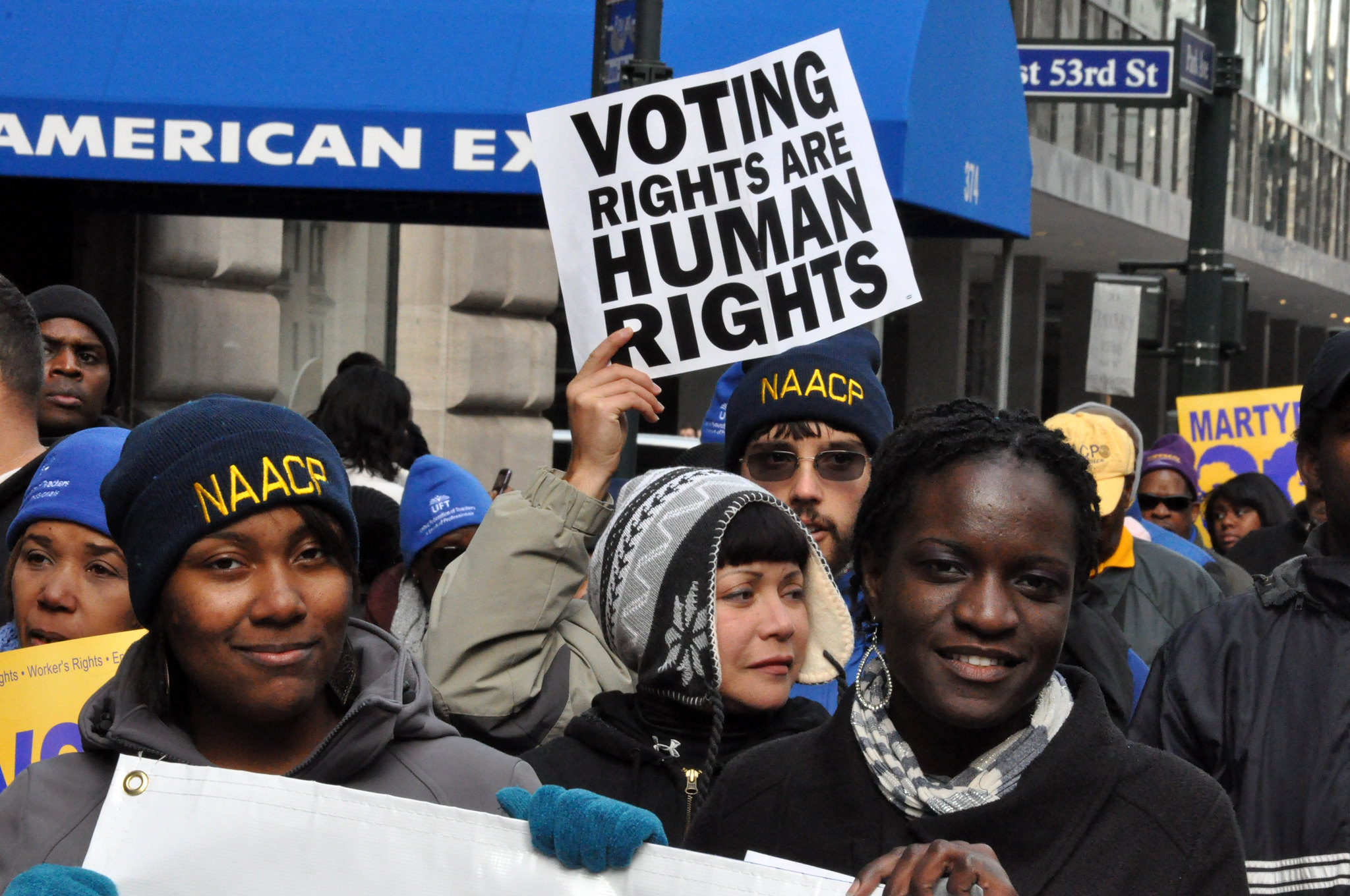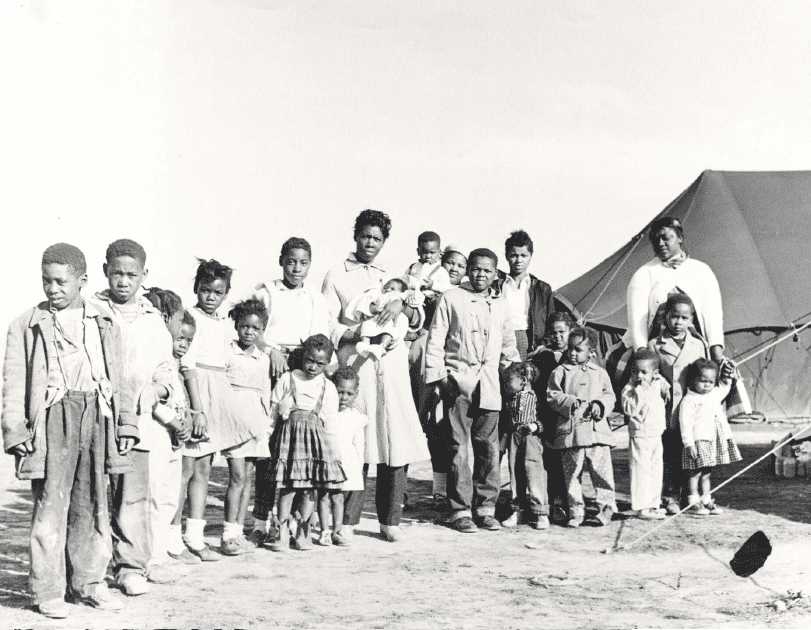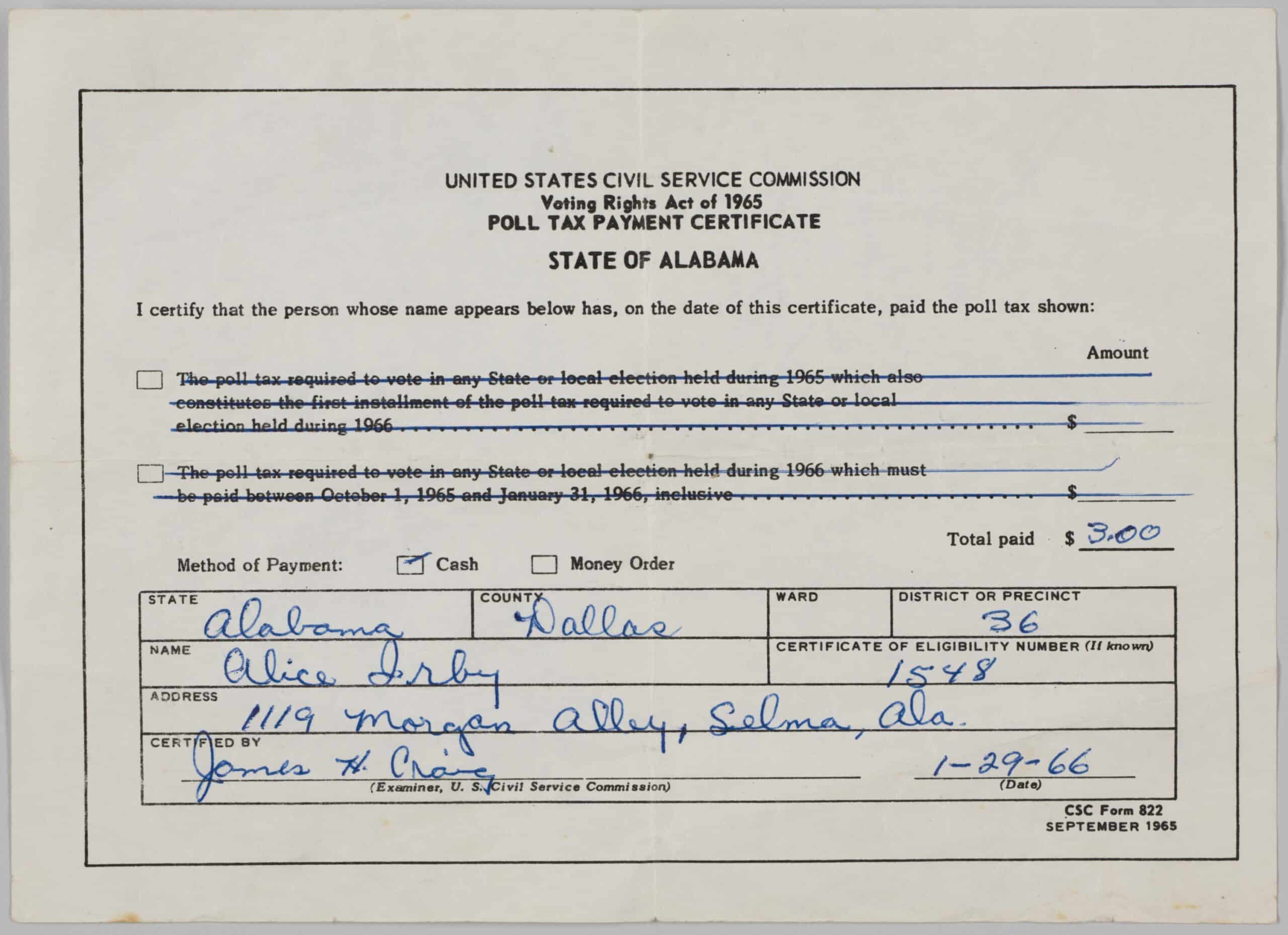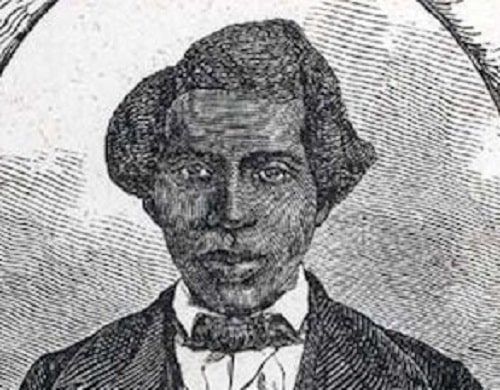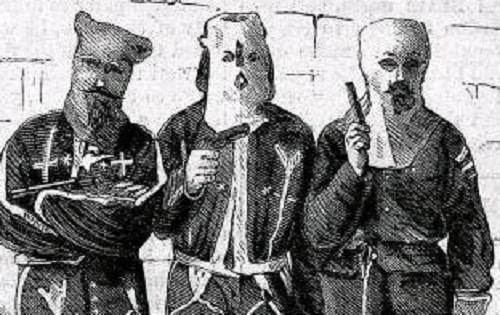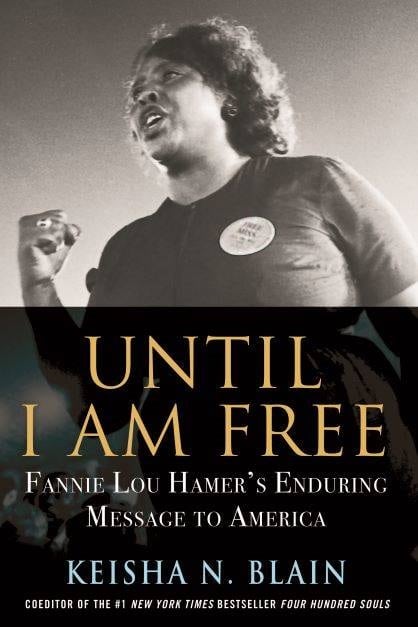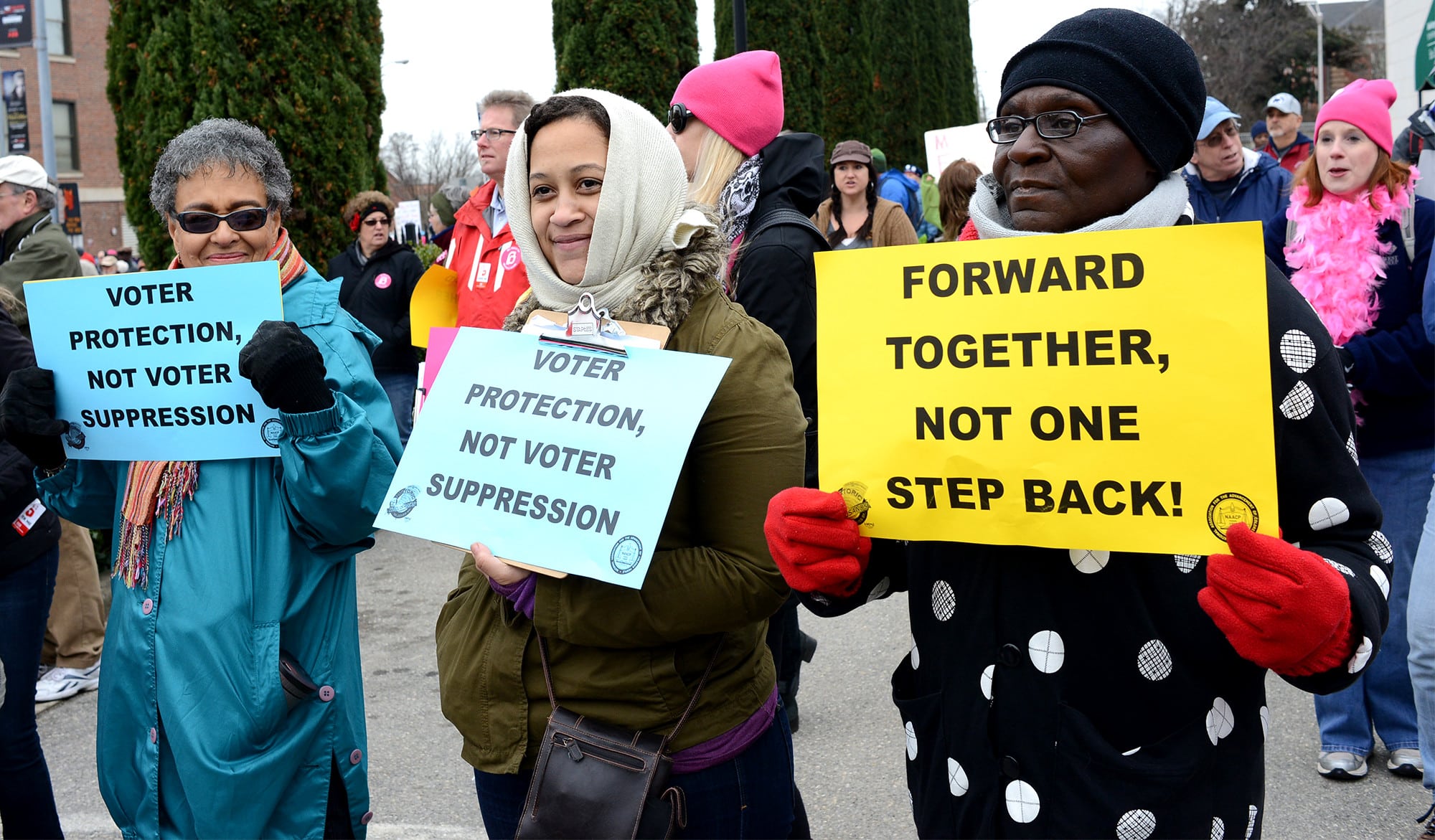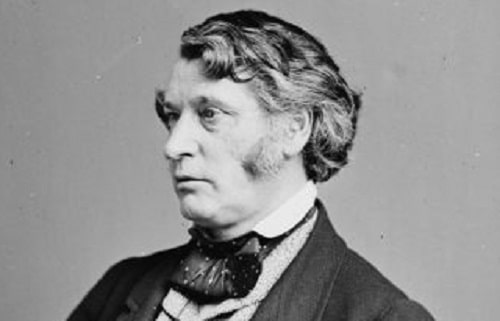Members of the National Woman Suffrage Association crashed the Centennial Celebration at Independence Hall in Philadelphia, Pennsylvania, to present the “Declaration of the Rights of Women.”
Continue reading
Book — Non-fiction. By Martha S. Jones. 2021. 368 pages.
This book excavates the lives and work of Black women from the earliest days of the republic to the passage of the 1965 Voting Rights Act and beyond.
Continue reading
Film. Directed by Lucy Massie Phenix and Catherine Murphy. 2019. 9 minutes.
Documentary about Citizenship Schools.
Continue reading
Book — Non-fiction. By Carol Anderson with Tonya Bolden. 2019. 288 pages.
A young readers edition of Anderson's voter suppression analysis and history, One Person, No Vote.
Continue reading
Book — Fiction. By Brandy Colbert. 2020. 304 pages.
A novel for high school students that centers on voting rights — weaving in a myriad of voter suppression tactics and the importance of everyone playing a role in fighting for the right to vote.
Continue reading
Mississippi Gov. Tate Reeves' state budget proposal include three million dollars for a “Patriotic Education Fund,” which argues that "the United States is the greatest country in the history of the world."
Continue reading
Book — Non-fiction. By Gordon A. Martin Jr. 2014. 272 pages.
A detailed portrait of brave individuals who risked everything in their fight for the right to vote.
Continue reading
How to contextualize and frame the two major political events of Jan. 6, 2021: An historic grassroots organizing victory in Georgia and an attempted coup at the U.S. Capitol.
Continue reading
Teaching Activity. By Adam Sanchez. Rethinking Schools. 24 pages.
A series of role plays that explore the history and evolution of the Student Nonviolent Coordinating Committee, including freedom rides and voter registration.
Continue reading
The Student Nonviolent Coordinating Committee (SNCC) voting rights campaign held a Freedom Day in Hattiesburg, Mississippi.
Continue reading
On election day, in Louisville, Kentucky, Protestant mobs attacked German and Irish Catholic neighborhoods.
Continue reading
President Ulysses S. Grant signed into law the third of the Enforcement Acts, a Reconstruction-era bill that empowered the federal government to intervene when the 13th, 14th, and 15th Amendments are violated.
Continue reading
Philadelphia, Pennsylvania Black educator, baseball player, and civil rights activist Octavius V. Catto was murdered by a white supremacist on election day.
Continue reading
Mrs. Fannie Lou Hamer, and the other members of the MFDP at the Democratic National Convention, questioned the nation about the lack of “one person, one vote” in the United States.
Continue reading
Teaching Activity. By Ursula Wolfe-Rocca. 2020.
Unit with three lessons on voting rights, including the history of the struggle against voter suppression in the United States.
Continue reading
A white family (the Heffners) in McComb, Mississippi, left after a campaign of harassment, ostracism, and economic retaliation for having spoken to civil rights workers.
Continue reading
Black sharecroppers were evicted by white landowners simply for exercising their right to register to vote.
Continue reading
The 24th Amendment to the Constitution of the United States was ratified.
Continue reading
Tunis Campbell, who assisted in the Port Royal Experiment to assist freed people during Reconstruction, was an abolitionist, state senator, and justice of the peace.
Continue reading
Book — Non-fiction. By Keisha N. Blain. 2021. 200 pages.
A riveting account of the life of Fannie Lou Hamer, highlighting the relevance of her activism on the politics of today.
Continue reading
In 2021, two new Democratic lawmakers from Georgia were elected to the U.S. Senate, one of whom is only the 11th African American senator in U.S. history.
Continue reading
Born on this day in Massachusetts, Charles Sumner was outspoken against slavery, for full recognition of Haiti, against the U.S.-Mexico War, for true reconstruction with land distribution, against school segregation, and much more.
Continue reading
The first “Redeemer” government is established in Tennessee after conservatives gain control of the state’s General Assembly, ushering in an era of Jim Crow segregation laws.
Continue reading

